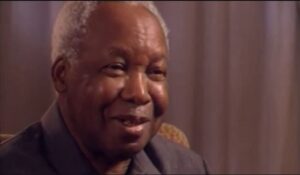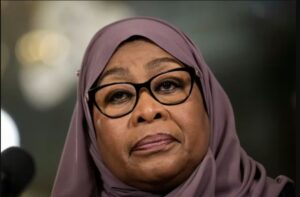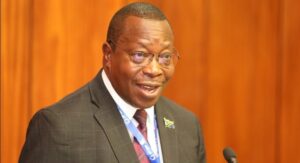Tanzania, a nation known for its rich history and cultural diversity, has seen various leaders since gaining independence.
These presidents have each contributed uniquely to the nation’s development. Let’s explore the list of Tanzanian presidents, their tenures, and key highlights of their leadership.
READ ALSO: Presidents That Have Ruled DR Congo Till Date
List of Presidents of Tanzania
| President | Years in Office |
|---|---|
| Julius Nyerere | 1964 - 1985 |
| Ali Hassan Mwinyi | 1985 - 1995 |
| Benjamin Mkapa | 1995 - 2005 |
| Jakaya Kikwete | 2005 - 2015 |
| John Magufuli | 2015 - 2021 |
| Samia Suluhu Hassan | 2021 - Present |
The First President of Tanzania:

Tenure: 1964 – 1985
Julius Nyerere, fondly known as “Mwalimu” (teacher), was Tanzania’s first president. He is celebrated as the founding father of the nation, leading it to independence and shaping its early political landscape.
Notable Achievements
- Independence Leader: Nyerere was instrumental in leading Tanganyika (now part of Tanzania) to independence from British colonial rule in 1961.
- Ujamaa Policy: He introduced the Ujamaa policy, a form of African socialism aimed at promoting collective farming and rural development.
- Education Expansion: Nyerere significantly expanded access to education, focusing on primary education for all children.
Downsides
- Economic Challenges: His Ujamaa policy, despite its noble intentions, led to economic difficulties and inefficiencies in agriculture and industry.
- Authoritarian Tendencies: Nyerere’s leadership became increasingly authoritarian, with limited political pluralism and suppression of dissent.
READ ALSO: Presidents That Have Ruled Ethiopia Till Date
The Current President of Tanzania:

Tenure: 2021 – Present
Samia Suluhu Hassan, the current president, is Tanzania’s first female head of state. She took office in 2021 following the sudden death of her predecessor, John Magufuli.
Notable Achievements
- COVID-19 Response: Hassan has taken a more proactive and transparent approach to handling the COVID-19 pandemic compared to her predecessor.
- Economic Reforms: She has initiated several economic reforms aimed at improving the business environment and attracting foreign investment.
- Diplomacy: Hassan has worked to strengthen Tanzania’s diplomatic relations with neighboring countries and the international community.
Downsides
- Political Tensions: Her tenure has seen significant political tensions, particularly with the opposition, who have accused her government of limiting political freedoms.
- Economic Challenges: Despite efforts at reform, Tanzania continues to face economic challenges, including high unemployment and inflation.
READ ALSO: Prime Ministers That Have Ruled Morocco Till Date
The Current Vice President of Tanzania:

Tenure: 2021 – Present
Philip Mpango serves as the current Vice President of Tanzania, working alongside President Samia Suluhu Hassan. Prior to his vice presidency, he was the Minister of Finance and Planning.
Notable Achievements
- Economic Expertise: As a former Minister of Finance, Mpango brings extensive economic expertise to the role, focusing on fiscal policies and economic growth.
- Health and Education Initiatives: He has supported various initiatives aimed at improving health and education services across the country.
Downsides
- Economic Constraints: Despite his expertise, Tanzania’s economy continues to face significant constraints, including budget deficits and debt.
- Political Challenges: Like the president, Mpango has faced criticism regarding political freedoms and the handling of opposition parties.
READ ALSO: Presidents That Have Ruled Kenya Till Date
Other Notable Presidents
Ali Hassan Mwinyi
Tenure: 1985 – 1995
Ali Hassan Mwinyi, Tanzania’s second president, is known for initiating economic liberalization and political reforms.
Achievements
- Economic Liberalization: Mwinyi introduced significant economic reforms, moving away from socialist policies towards a market-oriented economy.
- Political Reforms: He allowed greater political pluralism, leading to the introduction of multiparty politics in Tanzania.
Downsides
- Economic Inequality: The shift to a market economy led to increased economic inequality and challenges in social services.
- Corruption: His tenure faced issues of corruption and mismanagement, which impacted public trust.
Benjamin Mkapa
Tenure: 1995 – 2005
Benjamin Mkapa’s presidency is marked by continued economic reforms and efforts to combat corruption.
Achievements
- Economic Stability: Mkapa’s policies contributed to economic stability and growth, with significant investments in infrastructure.
- Anti-Corruption Efforts: He launched initiatives to combat corruption, aiming to improve governance and transparency.
READ ALSO: Presidents That Have Ruled Seychelles Till Date
Downsides
- Economic Disparities: Despite growth, economic disparities persisted, particularly in rural areas.
- Human Rights Issues: Mkapa’s tenure faced criticisms regarding human rights abuses and limitations on political freedoms.
Jakaya Kikwete
Tenure: 2005 – 2015
Jakaya Kikwete’s presidency focused on health and education improvements and international diplomacy.
Achievements
- Health and Education: Kikwete significantly increased investments in health and education, leading to improved access and outcomes.
- Diplomatic Relations: He enhanced Tanzania’s diplomatic relations and played a key role in regional peace initiatives.
Downsides
- Corruption: Despite efforts, corruption remained a significant issue during his tenure.
- Economic Challenges: Tanzania continued to face economic challenges, including high poverty rates and unemployment.
John Magufuli
Tenure: 2015 – 2021
John Magufuli, known for his strict and hands-on approach, focused on infrastructure development and anti-corruption efforts.
Achievements
- Infrastructure Development: Magufuli invested heavily in infrastructure projects, including roads, railways, and the expansion of electricity access.
- Anti-Corruption: He launched aggressive anti-corruption campaigns, aiming to improve government efficiency and reduce waste.
Downsides
- Authoritarian Rule: Magufuli’s governance style was seen as increasingly authoritarian, with crackdowns on political opposition and media freedom.
- COVID-19 Response: His controversial handling of the COVID-19 pandemic, including downplaying its severity, drew significant criticism.
READ ALSO: Presidents That Have Ruled Senegal Till Date
Conclusion
Tanzania’s history of presidential leadership is a testament to the nation’s resilience and progress. Each president has contributed uniquely to its development, with achievements and challenges that have shaped Tanzania’s path. As the country continues to evolve, the lessons from its past leaders will undoubtedly inform its future.
